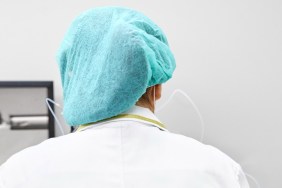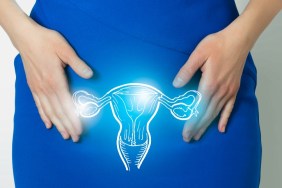How much do you weigh?
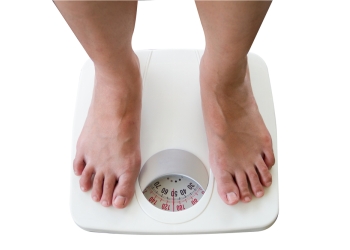 Being severely underweight or overweight/obese can greatly impact your odds of pregnancy.
Being severely underweight or overweight/obese can greatly impact your odds of pregnancy.
How to know if you fall within the advised wreight range?
Start by knowing your Body Mass Index (BMI), a measurement of your body fat relative to weight and height. Women who have a BMI of less than 19 take four times longer to conceive, according to Isaac Sasson, M.D., Ph.D., a reproductive endocrinologist with Shady Grove Fertility in Chesterbrook, PA. Many women with a low BMI have stopped ovulating and no longer get their periods. “It’s basic biology: Your body needs enough nutrients to support your pregnancy, and your brain is aware there aren’t enough energy resources to do this,” says Dr. Sasson.
On the other hand, women with a BMI of more than 35 can also have difficulties getting pregnant, with up to double the amount of time to conception. “There’s not only a problem from a fertility perspective, there’s also a greater chance of difficulties across the pregnancy, including higher rates of miscarriage, gestational diabetes, hypertension and birth defects,” notes Dr. Sasson.
Do you smoke?
 There’s little doubt that smoking can severely affect your ability to get pregnant. Nicotine and other harmful chemical in cigarettes interfere with your body’s ability to create estrogen (the hormone responsible in large part for ovulation) and your eggs can suffer abnormalities. Smokers in general reach menopause up to four years earlier than nonsmokers. The good news is that much of the damage done by smoking can be reversed, simply by snuffing out that cigarette, says Dr. Sasson.
There’s little doubt that smoking can severely affect your ability to get pregnant. Nicotine and other harmful chemical in cigarettes interfere with your body’s ability to create estrogen (the hormone responsible in large part for ovulation) and your eggs can suffer abnormalities. Smokers in general reach menopause up to four years earlier than nonsmokers. The good news is that much of the damage done by smoking can be reversed, simply by snuffing out that cigarette, says Dr. Sasson.
How much alcohol do you drink?
 If it’s more than two drinks a day, you’re reducing your risk of getting pregnant by up to 60 percent, says Dr. Sasson. That’s not to say you can’t have the occasional cocktail with your partner or friends, but keep it to a minimum and avoid binge drinking. And remember that once you do conceive, there is no safe level of alcohol for the duration of your pregnancy.
If it’s more than two drinks a day, you’re reducing your risk of getting pregnant by up to 60 percent, says Dr. Sasson. That’s not to say you can’t have the occasional cocktail with your partner or friends, but keep it to a minimum and avoid binge drinking. And remember that once you do conceive, there is no safe level of alcohol for the duration of your pregnancy.
How much caffeine do you consume?
 Women who take in more than 500 mg of caffeine a day (about the amount in five cups of coffee) significantly lower their risk of getting pregnant, says Dr. Sasson.
Women who take in more than 500 mg of caffeine a day (about the amount in five cups of coffee) significantly lower their risk of getting pregnant, says Dr. Sasson.
Unfortunately, 500 mg of caffeine is not all that difficult to gulp down: a large brewed coffee at a specialty chain can have upwards of 400 mg of caffeine in a single cup. Factor in a chocolate bar, soda, or energy drink later in the day and you can easily top the 500-mg mark. Keep your caffeine intake to about 250 mg to stay on the safe side, adds Dr. Sasson.
Do you have more than 35 candles on your birthday cake?
 When you are in your twenties, your chance of getting pregnant (when sex is unprotected, of course) is about 25 percent; by 35 that number drops to about 15 percent and by age 40 your likelihood of getting pregnant from intercourse is less than 10 percent. By the time you hit age 42, it’s less than 1 percent. “Age is the number-one predictor of success in any fertility treatment,” says Dr. Sasson. It’s a harsh truth, but this is a fact.
When you are in your twenties, your chance of getting pregnant (when sex is unprotected, of course) is about 25 percent; by 35 that number drops to about 15 percent and by age 40 your likelihood of getting pregnant from intercourse is less than 10 percent. By the time you hit age 42, it’s less than 1 percent. “Age is the number-one predictor of success in any fertility treatment,” says Dr. Sasson. It’s a harsh truth, but this is a fact.
If you’re under 35, having regular intercourse and getting regular periods, your chances of getting pregnant within a year is about 85 percent, Dr. Sasson notes. If you’re over 35 and have been trying for at least six months without success, consider talking to a fertility expert to help move things along.
Do you get your period each month?
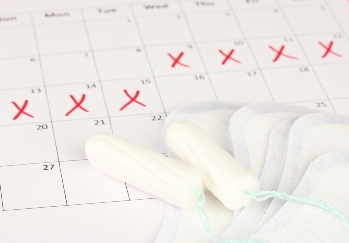 The best way to know if you are ovulating is if you are having regular cycles. “If you usually know exactly when you are getting your period each month, there’s a very good chance you are releasing an egg regularly,” says Dr. Sasson. If, on the other hand, your period comes sporadically—30 days one month, 45 or 90 days to the next one—you may need to get some help in regulating your ovulation. By monitoring when you ovulate (you can do this fairly easily with an over-the-counter ovulation prediction kit) you can help boost your odds of getting pregnant.
The best way to know if you are ovulating is if you are having regular cycles. “If you usually know exactly when you are getting your period each month, there’s a very good chance you are releasing an egg regularly,” says Dr. Sasson. If, on the other hand, your period comes sporadically—30 days one month, 45 or 90 days to the next one—you may need to get some help in regulating your ovulation. By monitoring when you ovulate (you can do this fairly easily with an over-the-counter ovulation prediction kit) you can help boost your odds of getting pregnant.
Are your fallopian tubes fully functional?
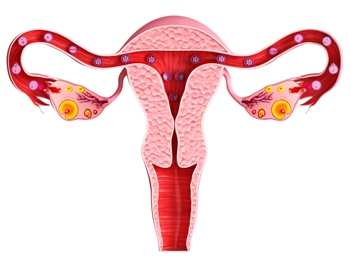 Your fallopian tubes are essentially the pathway that your eggs travel to get from the ovaries to the uterus. If there’s a problem along the way, you’ll have a more difficult time getting pregnant. Tubal factors account for about 35 percent of all infertility problems.
Your fallopian tubes are essentially the pathway that your eggs travel to get from the ovaries to the uterus. If there’s a problem along the way, you’ll have a more difficult time getting pregnant. Tubal factors account for about 35 percent of all infertility problems.
If you’re having fertility issues, your doctor may perform a special x-ray test, called an HSG (hysterosalpingogram) in which a dye is injected through the cervix, up the uterus and into the tubes, in order to determine whether there are any blockages. Women with a history of sexually transmitted diseases, abdominal surgery and some other factors have an increased risk of blockages.
Is your womb a welcoming place?
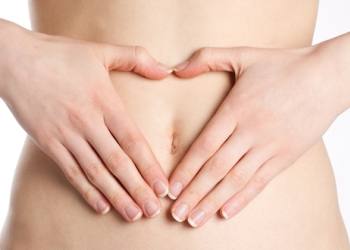 It’s where your baby will call home for the next nine months or so—but first your uterus has to be ready to accept implantation. And there may be a medical reason that can’t happen.
It’s where your baby will call home for the next nine months or so—but first your uterus has to be ready to accept implantation. And there may be a medical reason that can’t happen.
What are potential uterine problems? Sometimes a fibroid (a benign tumor made up of muscle tissue in the uterus) that is resting below the lining of the uterus may cause a problem because the embryo cannot burrow in and attach to the uterine wall. Uterine polyps (a growth in the lining of the uterus) or adhesions (scars that can be formed after surgical treatment) can also get in the way of the embryo’s ability to attach to the wall.
Medical treatments can remove these blockages and help the lining of the uterus regenerate so you can safely support a pregnancy. These uterine abnormalities can be seen via a test called a saline infusion hysterogram (also called a sono-hysterogram).
Is your cervix causing problems?
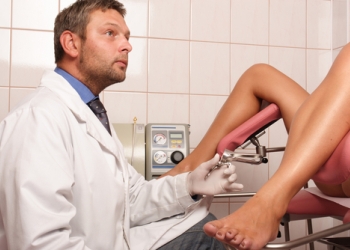 If you’ve ever had a procedure known as LEEP (Loop Electrosurgical Excision Procedure) to remove potentially precancerous tissue from the cervical canal, you may be at an increased risk of cervical scar tissue that can interfere with conception. “In some cases the cervix itself can be scarred enough to close off,” says Dr. Sasson.
If you’ve ever had a procedure known as LEEP (Loop Electrosurgical Excision Procedure) to remove potentially precancerous tissue from the cervical canal, you may be at an increased risk of cervical scar tissue that can interfere with conception. “In some cases the cervix itself can be scarred enough to close off,” says Dr. Sasson.
The condition is easily treatable (your doctor can dilate your cervix enough to allow sperm to pass through) or you can bypass the cervix altogether through fertility treatments like an intrauterine insemination (IUI), in which sperm is directly placed inside the uterus.
Do you have a history of endometriosis?
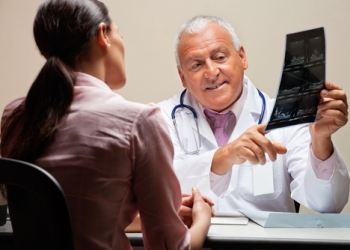 If the cells that line your uterus (known as the endometrium) start to implant or even grow outside the womb, you may develop a disorder called endometriosis. The condition itself can cause pain, irregular bleeding and in more severe cases, infertility issues or difficulty getting pregnant. Your doctor may recommend a minimally invasive procedure known as laparoscopy to remove scarring related to the condition or to remove cysts (called endometriomas) that can form around the ovaries. In some cases you may also wish to consider fertility treatments to boost your odds of conception.
If the cells that line your uterus (known as the endometrium) start to implant or even grow outside the womb, you may develop a disorder called endometriosis. The condition itself can cause pain, irregular bleeding and in more severe cases, infertility issues or difficulty getting pregnant. Your doctor may recommend a minimally invasive procedure known as laparoscopy to remove scarring related to the condition or to remove cysts (called endometriomas) that can form around the ovaries. In some cases you may also wish to consider fertility treatments to boost your odds of conception.
Is there something else going on?
 Up to 10 percent of couple are frustrated by unexplained infertility, explains Dr. Sasson. If you’re under age 30, you have time to keep trying, he notes, but if you are over 35, you may wish to consider a treatment choice such as superovulation with IUI or in vitro fertilization (IVF) to help get you achieve a successful pregnancy.
Up to 10 percent of couple are frustrated by unexplained infertility, explains Dr. Sasson. If you’re under age 30, you have time to keep trying, he notes, but if you are over 35, you may wish to consider a treatment choice such as superovulation with IUI or in vitro fertilization (IVF) to help get you achieve a successful pregnancy.
Article Sources:
Isaac Sasson, MD, PhD
[email protected]
Office contact: [email protected]
American Society for Reproductive Medicine:
http://www.reproductivefacts.org
.jpg?w=648)




